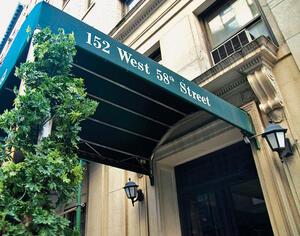Some Boards Raise Revenue by Buying and Selling Apartments. So Can You!

Aug. 27, 2013 — Last year, a rent-controlled tenant approached the co-op board of her building with a welcome proposition: If the board would buy her out, she would leave, and they could sell the apartment for a handsome sum. "She got a big pile of money, and we will get an enormous pile of money," says Carl Tait, president of the board at 152 West 58th Street, near Central Park. When all is said and done, this 33-unit co-op will clear $600,000 in tax-free cash. The building is currently under contract with a buyer for $950,000 for the two-bedroom apartment.
Condo and co-op boards rarely find themselves in the business of buying and selling units, but when they do, they can pad a building's reserves. Still, selling real estate is not an easy business and often means board members play the parts of apartment renovator, broker, negotiator, and financier. There are potential complications too: a building's bylaws can scuttle plans, the state of the housing market can turn on a dime, and coming up with cash to float the deal can prove vexing.
Buildings come into ownership of apartments in various ways. Sometimes, as was the case at 152 West 58th Street, the building's sponsor defaults on the maintenance, and the building ends up owning unsold or rental units. In other cases, a condominium might decide to exercise its right of first refusal for a sale and suddenly owns an apartment. Sometimes, the board decides to sell the super's unit or its rented retail space. Depending on the value of apartments in the building and the condition of the apartment itself, the profit margin can vary. But the opportunity to sell a unit can have huge rewards.
"It's a windfall for the building," says Steven Birbach, chairman of Carlton Management. "There's not much of a downside."
Loan Arranger
If a building finds itself in a position where it must pay for a unit in order to sell it, coming up with the cash can prove tricky. Sometimes, a board will dip into its reserve funds. Other times, it may take out a loan. At 152 West 58th Street, the board reached out to the shareholders and asked them to loan the building the money at an interest rate of three percent for the first 12 months, and four percent for the next six, to pay off the tenant. Several shareholders stepped up.
A building must carefully weigh the risks before it dips into its reserves or takes out a loan on speculation. Markets can turn, fees can run high, and at the end of the day, a building may not net enough to take on the risk. "You are playing with someone else's money," says Elliott Meisel, a co-op and condo attorney and partner at Brill & Meisel. "If you made a bad bet and the spread between what you paid for the unit and what you got wasn't a lot of money, you could even lose some money."
Also read:
For more, see our Site Map or join our Archive >>

